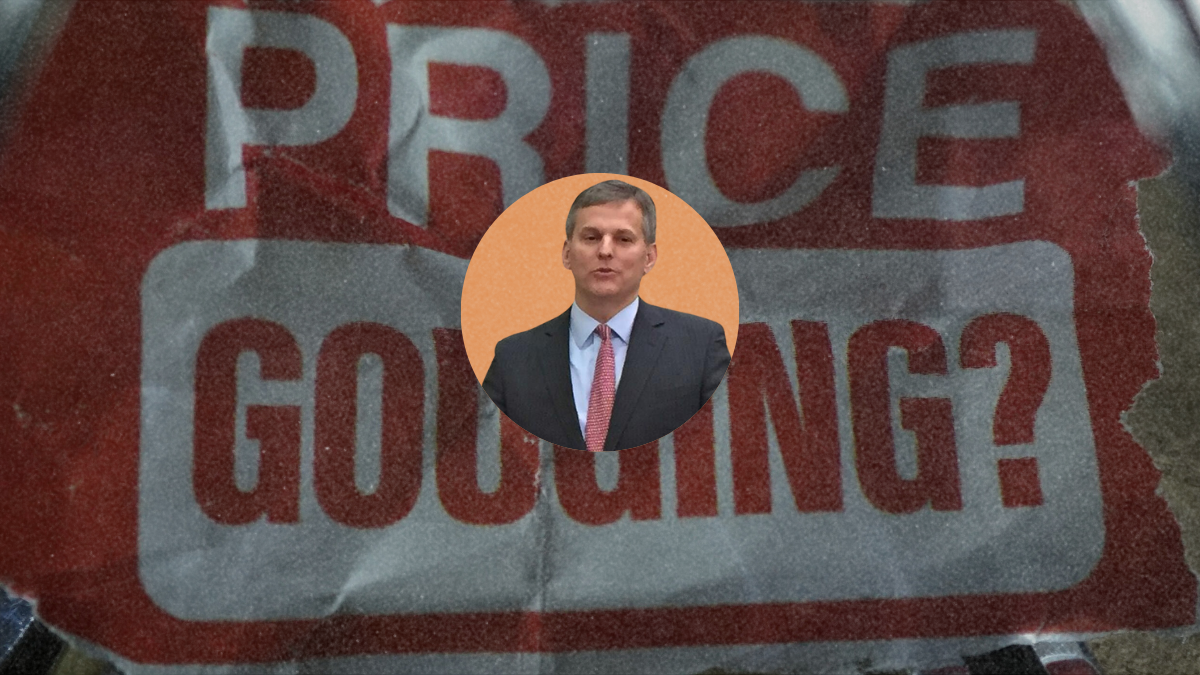Source: NC Attorney General’s Office
Attorney General Josh Stein announced that the NC Department of Justice had received 196 allegations of price gouging in the wake of Hurricane Helene.
At a press conference last Friday, Dena King, the Western District of North Carolina Attorney General, reported that essential items like fuel canisters were priced $50 above their usual cost, according to WBTV.
Unfortunately, the number of complaints is consistent with Hurricane Mathew in 2016, which generated over 180 complaints over price hikes on car rentals, water bottles, and hotels. Complaints can result in lawsuits from the NCDOJ to return damages, such as a recent $274,000 settlement secured by Attorney General Stein against a tree removal company that tricked Hurricane Florence victims into paying $580 an hour.
Price gouging protection laws in NC were codified after a series of storms in 2003 and are triggered by an “abnormal market disruption” or a state of emergency declaration. The law specifically protects commodities that “preserve, protect, or sustain life, health, safety, or economic well-being” and are part of why Emergency Declarations from the NC Department of Public Safety and the Governor’s Office are critical ahead of dangerous weather events.
Although the law is written to protect citizens from predatory pricing it’s worth noting that the law allows businesses to pass along increased costs to consumers such as hazard pay or running generators. Price gouging protections are only active in areas officially declared “under emergency” and expire 45 days after the emergency status is declared.
The Attorney General’s office asks that residents remain vigilant for scams and offers the following guidelines:
- Do your research. If a storm damages your property, you may need repairs. Be sure to get a written estimate from contractors before rushing into a deal. Getting an estimate will ensure you are not getting overcharged or scammed, as well as give you to opportunity to compare prices from other companies. Check out a business’s credentials and visit Better Business Bureau or call our office to make sure the company does not have complaints against them.
- Do not pay upfront. Some companies may pressure you to pay the full cost upfront before they start the work but then will fall short of what was asked of them. Pay your contractors as you go, once you are satisfied with the work they have done, and hold back a percentage until the job is done. If a business requires a downpayment, do not pay them without getting a written contract first. Pay with a credit card when possible so you have added protection in case of a dispute.
- Be wary of limited-time assistance. Some businesses may offer special “now or never” deals to your family following hurricane damage. A lot of these offers might come directly to your door, with out-of-state companies showing up at your doorstep and offering to do work immediately. If the deal seems too good to be true, it probably is. Don’t sign unless you’ve done your research.
Be on the lookout for price gouging. Some businesses will raise their prices to exploit times of crisis. Remember, if the governor declares a state of emergency, North Carolina’s price gouging law goes into effect. Report suspicions of price gouging to the AG’s office at 1-877-5-NO-SCAM or www.ncdoj.gov/pricegouging.





